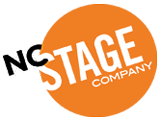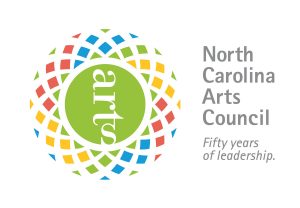During preview week, the company gathers on the first Friday night to participate in a post-show talkback. If you missed it, you can catch a short Q & A with Jennifer Austin, one of the stars of A Doll’s House, Part 2, here on our blog. Jennifer is making her North Carolina Stage Company debut as Nora in this production. Listen as we talk pre-show routines, what attracted her to this play, and her relationship with the role of Nora.
Prefer to read? See the summary below.
Don’t forget to order your tickets to A Doll’s House, Part 2,
now playing through November 17th!
TB: What do you do to prepare for the shows, to become Nora?
JA: First and foremost – because it’s so thick with lines in this show, for this character – before each show I definitely have to go through the script thoroughly each night. Not only the entire script, but we also do run some of the lines on stage or have some speed-throughs beforehand, so that’s really important. If I’m not sharp with that, it is definitely reflected – as I found out through one of the rehearsals – so that’s part of it. I think that’s probably the majority in terms of nightly [preparation]… One hundred and seven pages of dialogue and I’m on every page.
I think that and making sure I have as much liquid and some sustenance just to make sure I can get through it and have the energy I need; that I’m in a good space where I’m not too distracted with other things in the outer world and can really focus… I have to because this is such a juggernaut. I’ve never, I think, had to be so completely focused – mentally, emotionally, spiritually, everything – for a production as I have for this one.
TB: What attracted you to this role? What really brought you out to audition or what really brought you into the rehearsal process? What part of this role really meant something to you?
JA: Combination of things. Because I’m fairly new to Asheville… when people knew what I was involved with, they said “you really have to check out North Carolina Stage Company.” I’d heard so many good things about this place and when I knew about their season auditions, this was on my radar a lot – to want to come in and audition for them – because Charlie and Angie, their reputation was very good in the circles around here. I just really wanted to get in front of them, if possible.
Then just the Doll’s House – the original Doll’s House, preceding this – is kind of such a classic. But having researched the new one and knowing that it had so many wonderful comedic elements; I hadn’t seen it but I had read snippets and I had done some research just to see what it was about. I didn’t know that I would have a chance to be part of it but it felt like something that I really wanted to just give a try to. I think because when you have an opportunity to play a role like this – I don’t want to say it’s sort of a women’s empowerment role, but in a way – it’s so intelligently written and you’ve got so much humor in there and it says so much. I think when you span back the 100+ years, it’s still so relevant today, being written and set back in – what are we saying? 1894? That’s why we bring in some of those modern elements that people ask about, with the computer and the watch and things. I just find the relevance and the potency of it and it’s just so smartly written.
To have an opportunity to play a character like this is a dream. It’s just a dream. So who wouldn’t want to try and audition for something like this? And to be in the caliber of a team like this is just wonderful.
TB: For the listeners, you will notice some modern elements in the show. We are trying to combine the ideas that are presented and connect them to the modern day so you’ll see elements that are reflective of 1894 and elements that are reflective of present day in the show. These are intentional choices that the director made and it’s really wonderful to see that connection and bring it to life.
Finally, Nora expresses a lot of strong opinions in this show, she can be seen as this kind of feminist writer and really rejecting marriage in a lot of ways, so how do you feel similar to or connect with this character versus what are ways that you feel very different?
JA: Good question. There are some things that she has – speeches that she has in this – at the beginning certainly, there’s 4, 5, 7 page monologues that she goes on and on about her feelings about marriage and gender roles and the position it puts women in. Certainly at that time it was set back in the 1894 period, but I think some of what is so powerful is that the threads are still relevant. That’s what makes it so interesting. And a lot of those things, I wouldn’t say the exact things I found relevant to my life, but certainly themes. I found themes relevant. My friends and I, things that we would talk about: never wanting to find ourselves either stuck or trapped [in a relationship] and that kind of thing.
But then, the way that Nora can be fairly harsh with Torvald and a little bit uncompromising seemingly unforgiving in certain aspects, I had to work with Anne, the director, to find ways to really understand where Nora was coming from that is quite different from me. Where I can tend to be overly forgiving, overly compassionate – sometimes to my own detriment, where I would definitely not choose to react the way Nora reacted sometimes – that made it a stimulating challenge, a creative challenge, to say “alright, how would somebody coming from this viewpoint really attack this situation in these shoes that Jennifer wouldn’t do.” That would be the biggest difference.

















